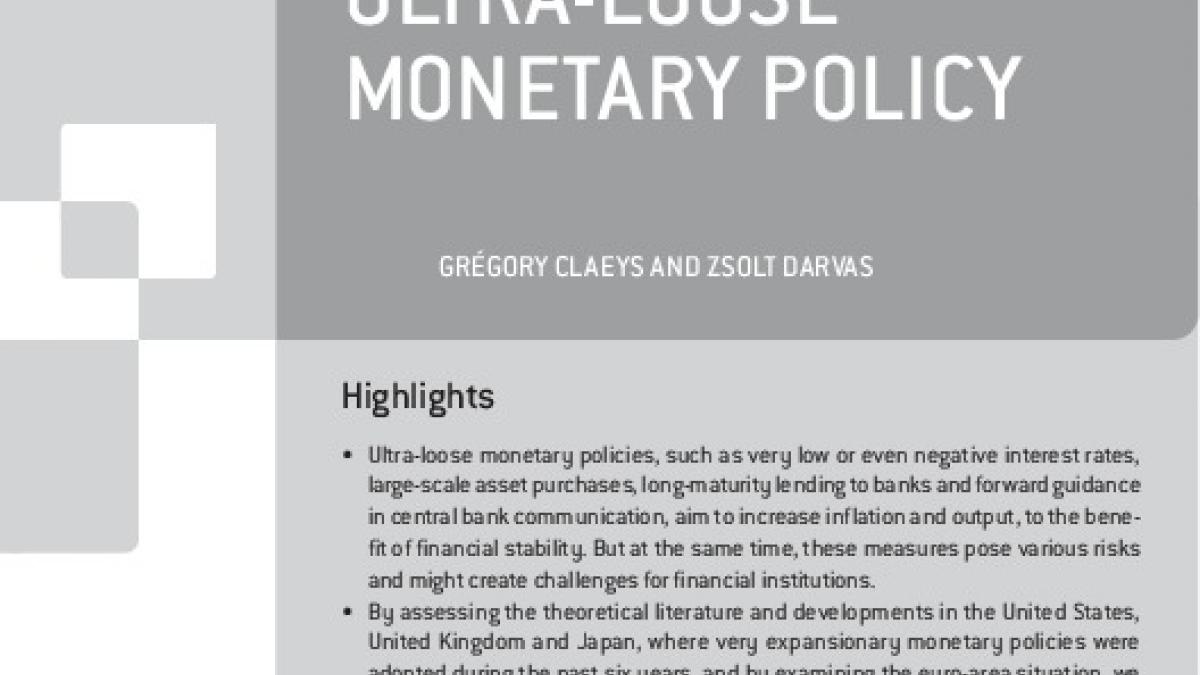The financial stability risks of ultra-loose monetary policy
This Policy Contribution was prepared for the European Parliament Committee on Economic and Monetary Affairs. It draws lessons for the euro-area based

• Ultra-loose monetary policies, such as very low or even negative interest rates, large-scale asset purchases, long-maturity lending to banks and forward guidance in central bank communication, aim to increase inflation and output, to the benefit of financial stability. But at the same time, these measures pose various risks and might create challenges for financial institutions.
• By assessing the theoretical literature and developments in the United States, United Kingdom and Japan, where very expansionary monetary policies were adopted during the past six years, and by examining the euro-area situation, we conclude that the risks to financial stability of ultra-loose monetary policy in the euro area could be low. However, vigilance is needed.
• While monetary policy should focus on its primary mandate of area-wide price stability, other policies should be deployed whenever the financial cycle deviates from the economic cycle or when heterogeneous financial developments in the euro area require financial tightening in some but not all countries. These policies include micro-prudential supervision, macro-prudential oversight, fiscal policy and regulation of sectors that pose risks to financial stability, such as construction.



